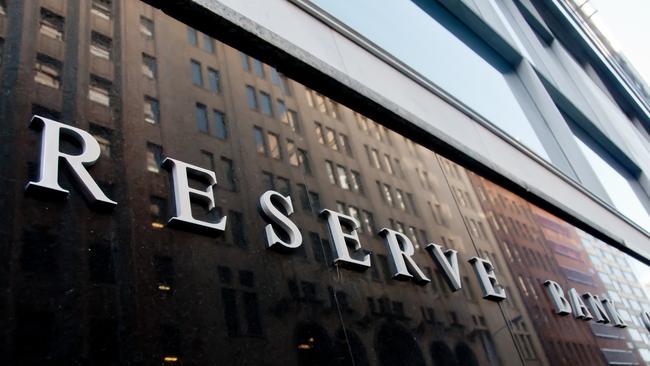A sharp correction down the road, warns RBA
As investors brace for an inflationary ‘inflection point’, the RBA says it is ‘closely monitoring’ the market for any sign record low interest rates have triggered a bubble that might bust.

The Reserve Bank says record-low interest rates have heightened the “risk of a sharp correction down the road”, amid warnings that Covid-19 may have shocked the developed world out of a 40-year disinflationary trend that has underpinned rising Australian household wealth.
Speaking at the Australian Securitisation Forum on Tuesday, RBA head of domestic markets Marion Kohler said central bank officials were closely monitoring whether asset prices remained “sensibly valued”.
“One area of focus stems from the current historically very low interest rates,” Ms Kohler said.
“Asset prices increase when risk-free rates are low, and this is part of the monetary transmission mechanism. However, as we’ve highlighted in recent financial stability reviews, over time it also raises the prospect of ‘search for yield’ behaviour, where investors bid up the price of risky assets to the extent that risk may no longer be adequately priced.”
The “search for yield” is when investors, starved of income in a low interest rate world, are forced to put their money into riskier assets – such as replacing equities with bonds – in an attempt to generate higher yields.
“This, in turn, increases the risk of a sharp correction down the road,” Ms Kohler said.
Stephen Miller, a 40-year veteran of financial markets who advises on investment strategy to GSFM, said he saw the potential reversal of a long established global downward trend in inflation and rates. If so, the impact on Australians’ wealth – particularly the trillions of dollars tied up in housing and superannuation accounts – could be dramatic.
“If inflation is even more persistent than it appears to be – and there’s a reasonable debate that it will be – and if bond yields rise from here, there’s a not trivial possibility there will be a correction in asset prices,” he said.
In Australia, decades of falling rates have been capitalised to the fullest extent in residential property prices. Mr Miller said home values could also experience a sharp drop if the Reserve Bank was pushed into chasing a global rate cycle.
Beverley Morris, head of fixed income investments at QIC, said there was “no doubt we are at an inflection point, as a surge in global inflation begins to focus markets on the exit from extreme policy settings”.
“Three-quarters of economies are now reporting consumer price growth at above 10-year average levels,” Ms Morris, who wrote the Bank of England’s regular inflation report during the late 1990s and early 2000s, said.
“There aren’t too many large, truly global shocks that have happened in the last 100 years, so this (the pandemic) is very different, very complex, and very widespread.
“One thing I learned from my years as a central banker is demand shocks are easy to understand, observe and deal with. Supply shocks are inherently difficult to see at the time, and can only be fully understood with the passage of time.”
That raised the chances of a monetary policy error, she said, where central bankers had to correct earlier policy missteps – risking more volatility and potentially triggering the next economic downturn
Ms Morris said RBA governor Philip Lowe would move very cautiously. “What we know is that Australian household debt levels are very high,” she said. “We also know that Australian consumers are very rate sensitive, and the RBA is very aware of that fact.”




To join the conversation, please log in. Don't have an account? Register
Join the conversation, you are commenting as Logout